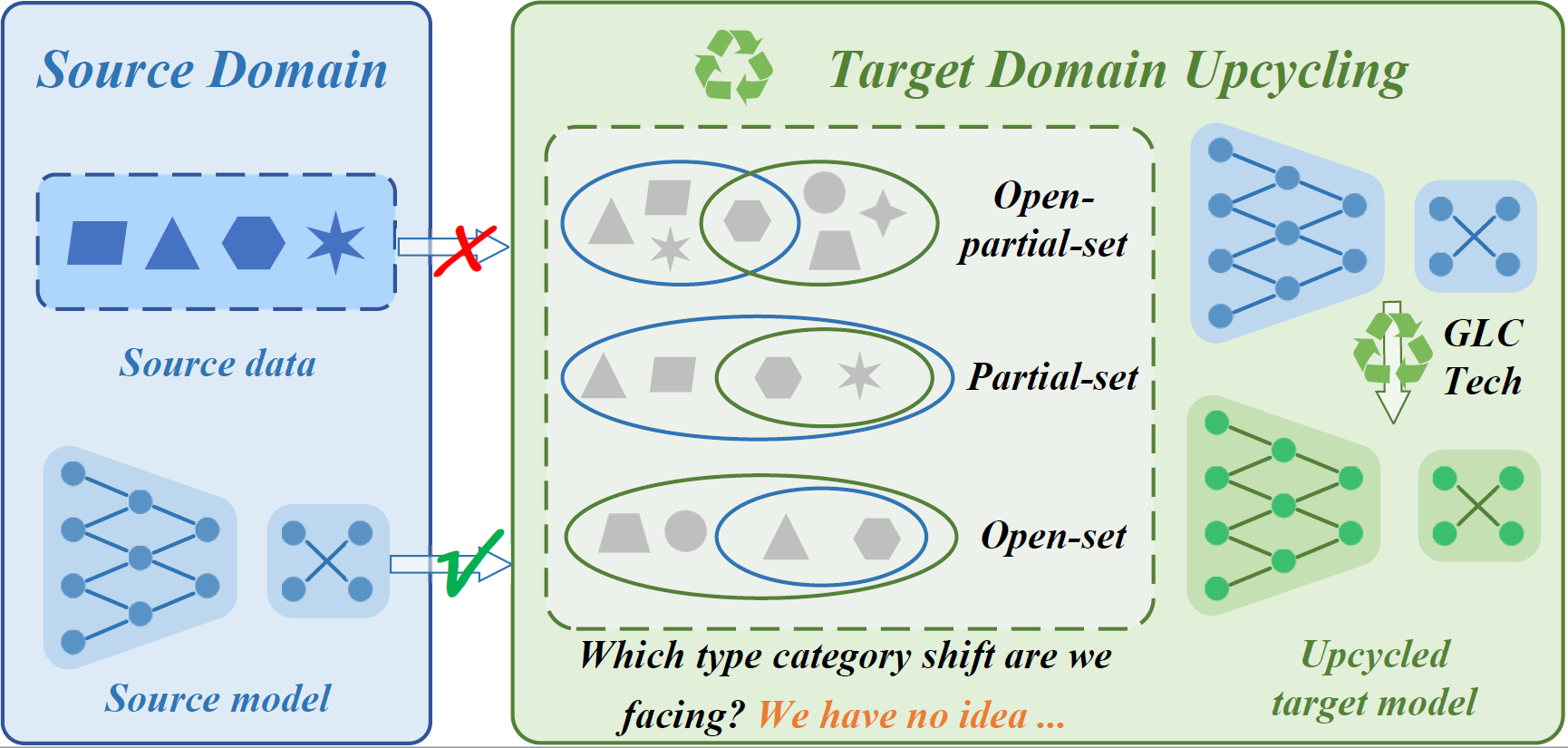Upcycling Models under Domain and Category Shift
Deep neural networks (DNNs) often perform poorly in the presence of domain shift and category shift. How to upcycle DNNs and adapt them to the target task remains an important open problem. Unsupervised Domain Adaptation (UDA), especially recently proposed Source-free Domain Adaptation (SFDA), has become a promising technology to address this issue. Nevertheless, existing SFDA methods require that the source domain and target domain share the same label space, consequently being only applicable to the vanilla closed-set setting. In this paper, we take one step further and explore the Source-free Universal Domain Adaptation (SF-UniDA). The goal is to identify "known" data samples under both domain and category shift, and reject those "unknown" data samples (not present in source classes), with only the knowledge from standard pre-trained source model. To this end, we introduce an innovative global and local clustering learning technique (GLC). Specifically, we design a novel, adaptive one-vs-all global clustering algorithm to achieve the distinction across different target classes and introduce a local k-NN clustering strategy to alleviate negative transfer. We examine the superiority of our GLC on multiple benchmarks with different category shift scenarios, including partial-set, open-set, and open-partial-set DA. Remarkably, in the most challenging open-partial-set DA scenario, GLC outperforms UMAD by 14.8\% on the VisDA benchmark. The code is available at https://github.com/ispc-lab/GLC.
PDF Abstract CVPR 2023 PDF CVPR 2023 Abstract








 Office-Home
Office-Home
 DomainNet
DomainNet
 Office-31
Office-31
 VisDA-2017
VisDA-2017
